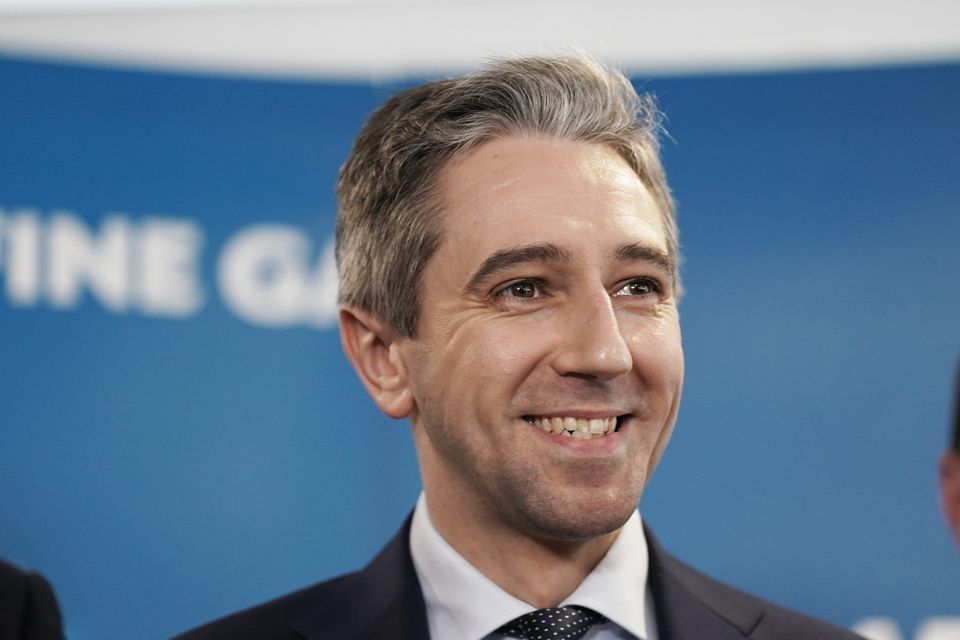Politics
Simon Harris Advocates for Urgent EU Vote on Israeli Sanctions

The Tánaiste and Minister for Further and Higher Education, Research, Innovation and Science, Simon Harris, has announced plans to advocate for an expedited vote within the European Union regarding trade sanctions aimed at Israel. This initiative follows the recent proposal published by the European Commission to suspend key trade components of the EU’s Association Agreement with Israel, which is designed to regulate trade relations between the two parties.
The proposal, made public this week, highlights the EU’s commitment to addressing ongoing concerns regarding human rights and international law violations in the region. Harris’s push for an early vote aims to solidify EU consensus on the matter and ensure that the bloc takes a unified stance regarding its trade policies with Israel.
Harris emphasized the urgency of the situation, stating that the EU cannot remain passive in light of the ongoing conflict and humanitarian crises. He underlined that any form of economic support must align with the EU’s values and commitments to human rights. As tensions escalate in the region, this proposed vote is seen as a critical step in holding Israel accountable for its actions.
Despite the potential economic implications for both sides, the EU’s position has remained firm in advocating for peace and stability in the Middle East. The Association Agreement with Israel has facilitated significant trade, valued at approximately €30 billion annually, but the current geopolitical climate has sparked discussions about the moral responsibilities of the EU in its trade relations.
In light of this proposal, various EU member states are expected to weigh in on their support or opposition to the sanctions. The upcoming discussions are anticipated to be heated, reflecting the diverse perspectives within the union regarding how best to handle the ongoing crisis.
Harris’s call for an early vote is not only a reflection of the EU’s internal dynamics but also signals a broader commitment to addressing human rights issues globally. The EU’s actions will be closely monitored by international observers, as they may set a precedent for how trade agreements are managed in response to human rights concerns.
As the situation develops, the outcome of the EU’s vote will significantly impact future relations between the EU and Israel, as well as influence global perceptions of the EU’s role in international human rights advocacy. The urgency of these discussions underscores the complex interplay between trade, diplomacy, and ethical considerations in international relations.
-

 Top Stories3 months ago
Top Stories3 months agoTributes Surge for 9-Year-Old Leon Briody After Cancer Battle
-

 Entertainment4 months ago
Entertainment4 months agoAimee Osbourne Joins Family for Emotional Tribute to Ozzy
-

 Politics4 months ago
Politics4 months agoDanny Healy-Rae Considers Complaint After Altercation with Garda
-

 Top Stories4 months ago
Top Stories4 months agoIreland Enjoys Summer Heat as Hurricane Erin Approaches Atlantic
-

 World5 months ago
World5 months agoHawaii Commemorates 80 Years Since Hiroshima Bombing with Ceremony
-

 Top Stories3 months ago
Top Stories3 months agoNewcastle West Woman Patricia Foley Found Safe After Urgent Search
-

 Top Stories5 months ago
Top Stories5 months agoFianna Fáil TDs Urgently Consider Maire Geoghegan-Quinn for Presidency
-

 World5 months ago
World5 months agoCouple Convicted of Murdering Two-Year-Old Grandson in Wales
-

 World5 months ago
World5 months agoGaza Aid Distribution Tragedy: 20 Killed Amid Ongoing Violence
-

 World5 months ago
World5 months agoAristocrat Constance Marten and Partner Convicted of Infant Murder
-

 Top Stories4 months ago
Top Stories4 months agoClimbing Errigal: A Must-Do Summer Adventure in Donegal
-

 Top Stories4 months ago
Top Stories4 months agoHike Donegal’s Errigal Mountain NOW for Unforgettable Summer Views








